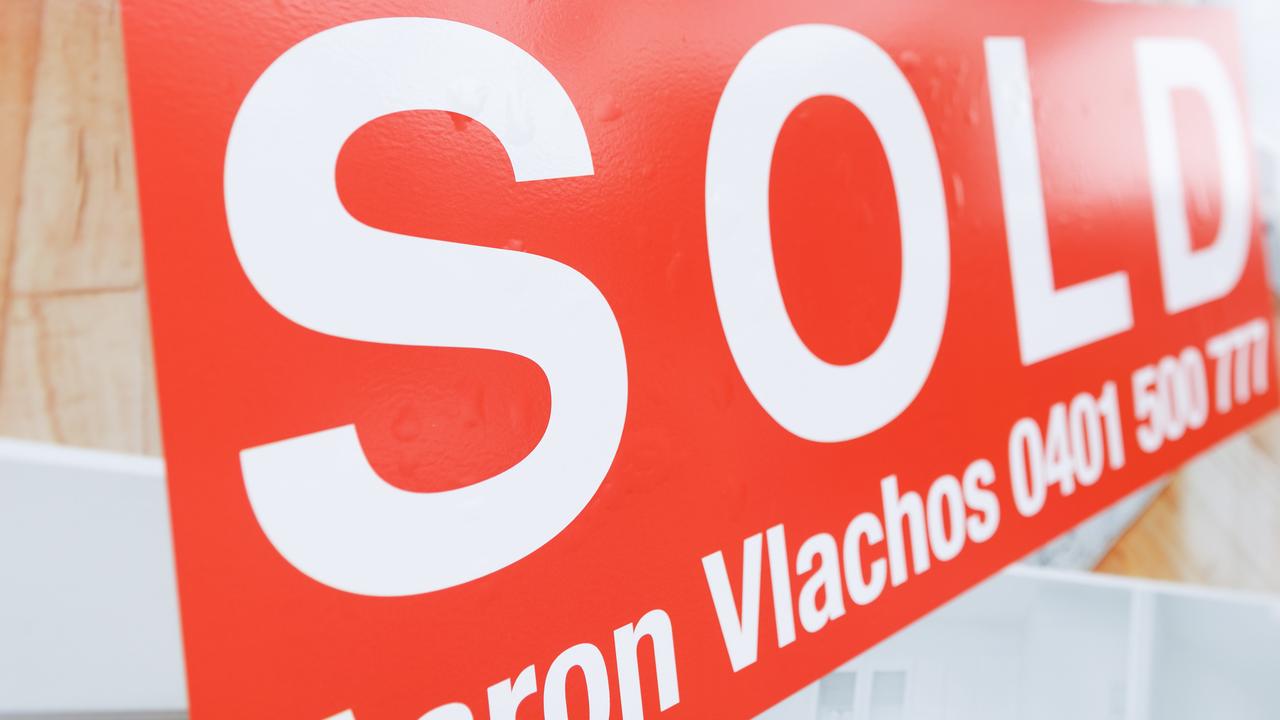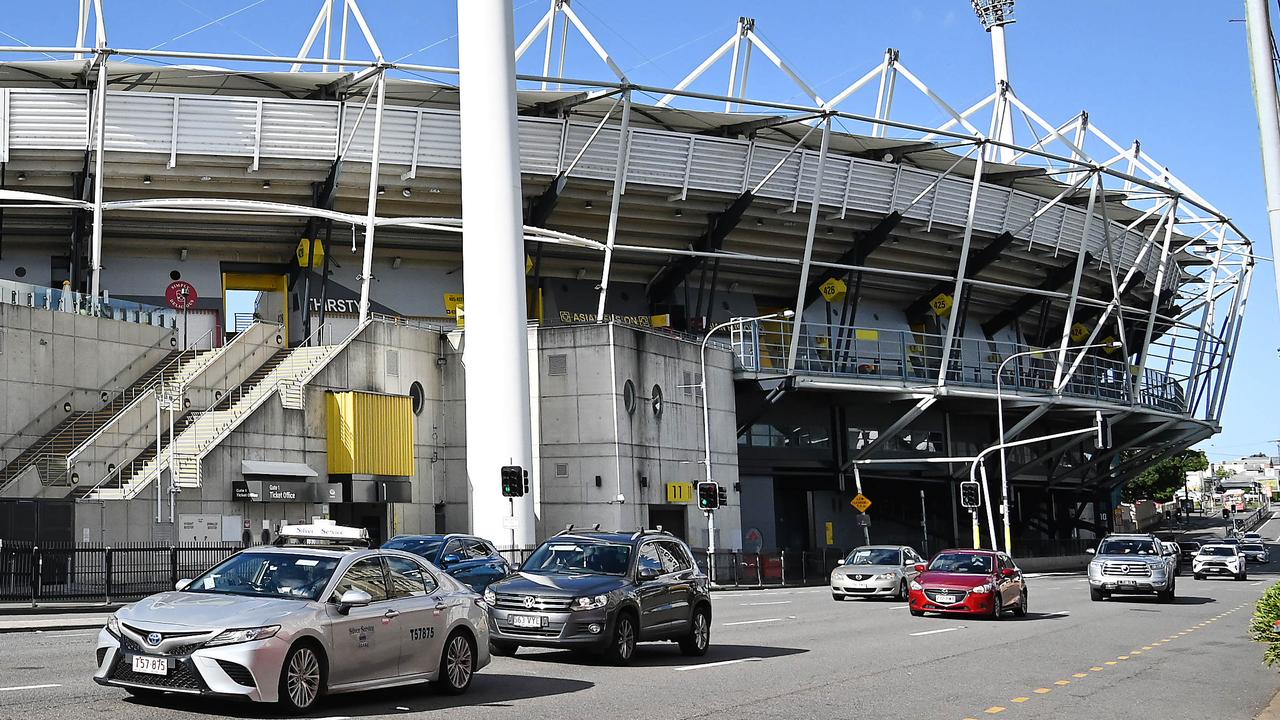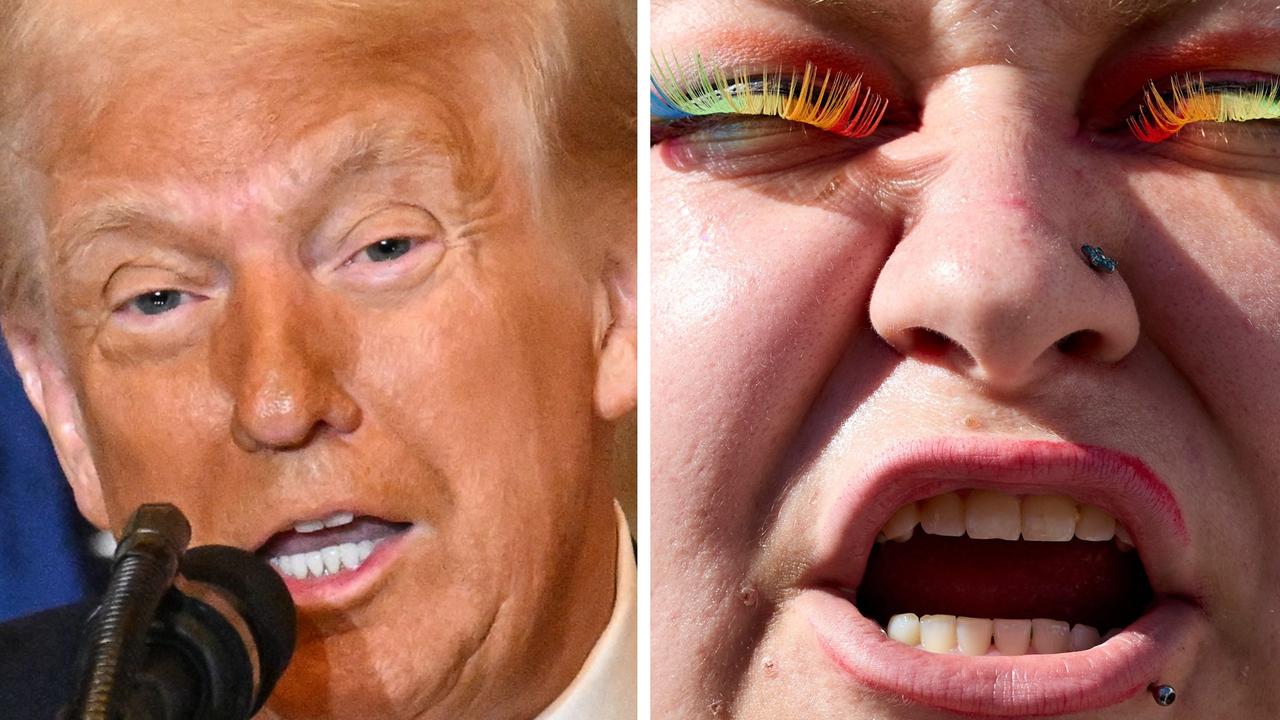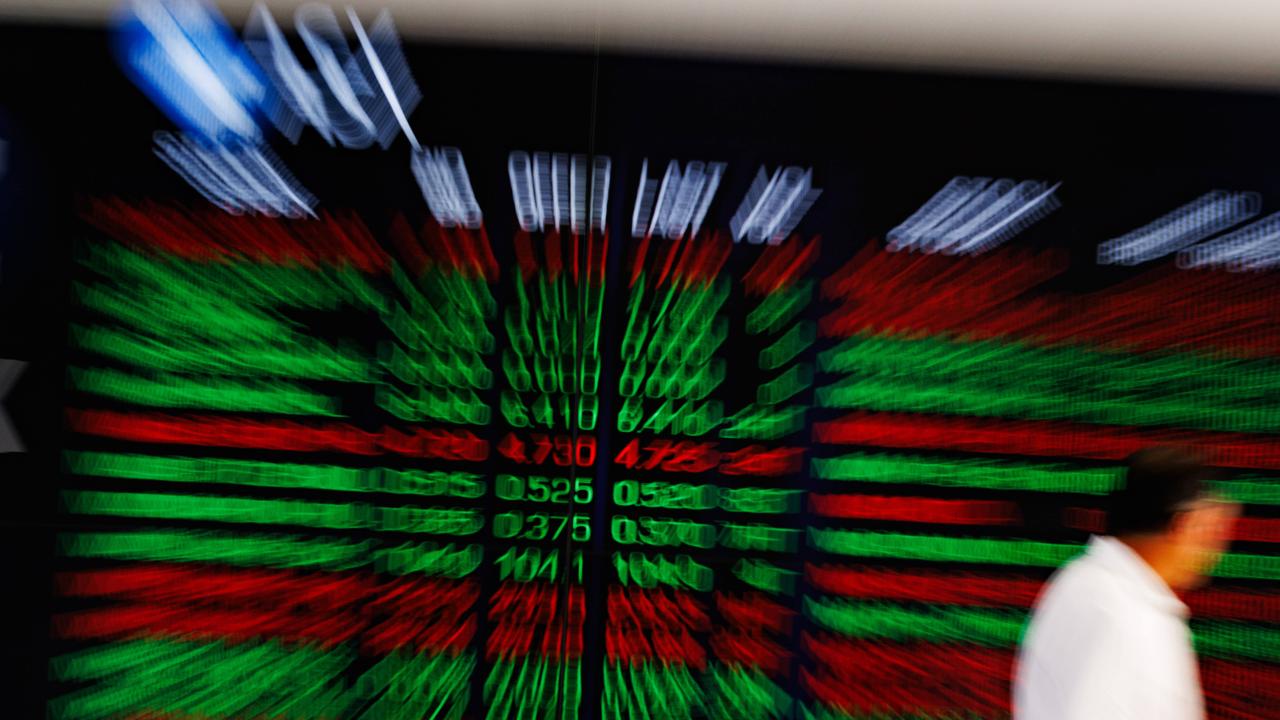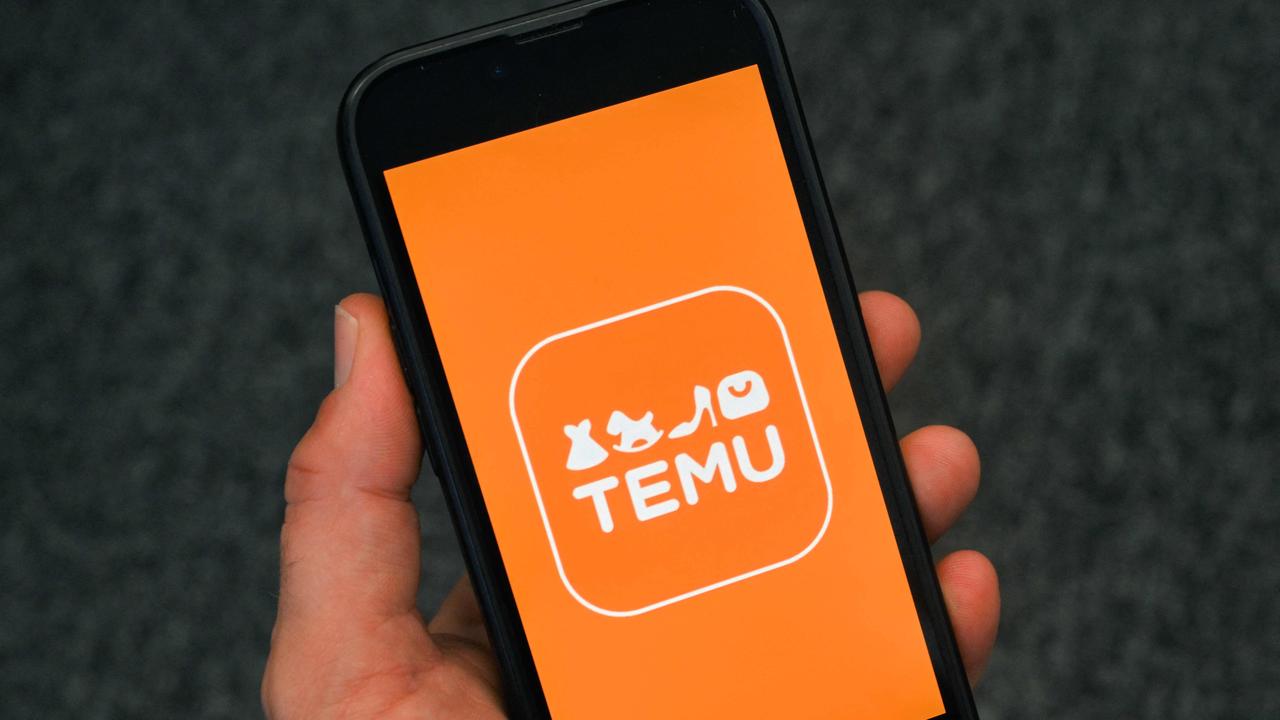Iron ore price could drop as low as $US20/tonne amid bitter China Australian relations
There are warnings the iron ore price could drop incredibly low, with calls for Australia to take the “fight” to China via the global trade umpire.
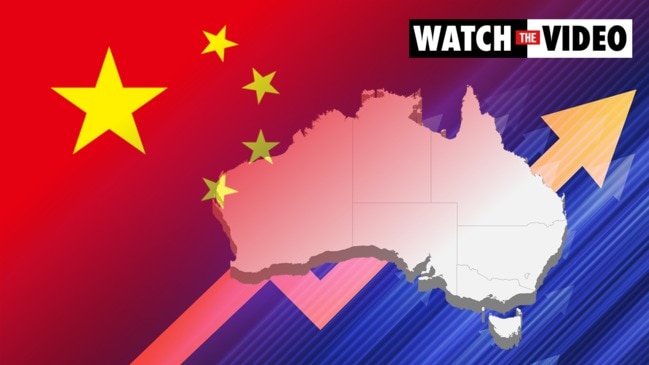
Economy
Don't miss out on the headlines from Economy. Followed categories will be added to My News.
Iron ore’s price could drop as low as $US20 a tonne, “jeopardising” the export’s status as Australia’s big money earner and exposing the country to “Chinese coercion”, a new report has found.
The Australian Strategic Policy Institute released a report exploring the future of iron ore exports to China after its “bonanza” year where sales brought in more than $150 billion to the Aussie economy.
But China is determined to break its reliance on Australian iron ore, the report noted.
Its latest five-year plan for its steel industry sets targets for raising the share of iron ore provided by Chinese-owned mines, both domestically and overseas, and for raising the amount of steel made using scrap.
The report floated a scenario where iron ore switches from its current shortage status to surplus as China’s demand drops under its plan or due to an economic downturn as result of one of its biggest property developers China Evergrande collapsing.
“The surplus ore could be significant – several hundred million tonnes a year. Australian ore
remains the lowest cost, but the price drops back to $US20-30/tonne, jeopardising higher cost operations and potentially exposing Australian iron ore miners to Chinese coercion,” the report said.

Australia should strike back
Report author David Uren said China hasn’t been afraid to use coercion in the past when it comes to Aussie exports, such as preventing coal shipments from landing on shore.
“We have seen in other markets where they simply reject Australian shipments and attempt to push costs back onto the Australian economy,” he told news.com.au.
“With coal, Australia has been quite successful in finding other markets, similarly with cotton, but it would be difficult with iron ore as China is such a large purchaser of our iron ore.”
Uren recommended Australia take China to the global trade umpire over its coal export ban to reduce the chance of iron ore being dragged into the bitter diplomatic dispute between the two countries.
Australia has already lodged a complaint with the World Trade Organisation (WTO) over Chinese tariffs on barley and wine.
“While Australia must choose its fights, there’s a strong case for the Government to advance a complaint on coal: It doesn’t involve a formal tariff but is pure discrimination against a single supplier nation,” he said in the report.
“Importantly, success before the WTO in a case over coal could act as a precedent for any similar discrimination against Australian iron ore.”
Uren added a drop in the iron ore price would have a direct impact on the Australian economy.
“It means the Commonwealth collects less corporate tax, Western Australia collects less iron ore royalties and Australia overall gets less export revenue and that has its impact on budgets, employment and the macro economy generally,” he said.
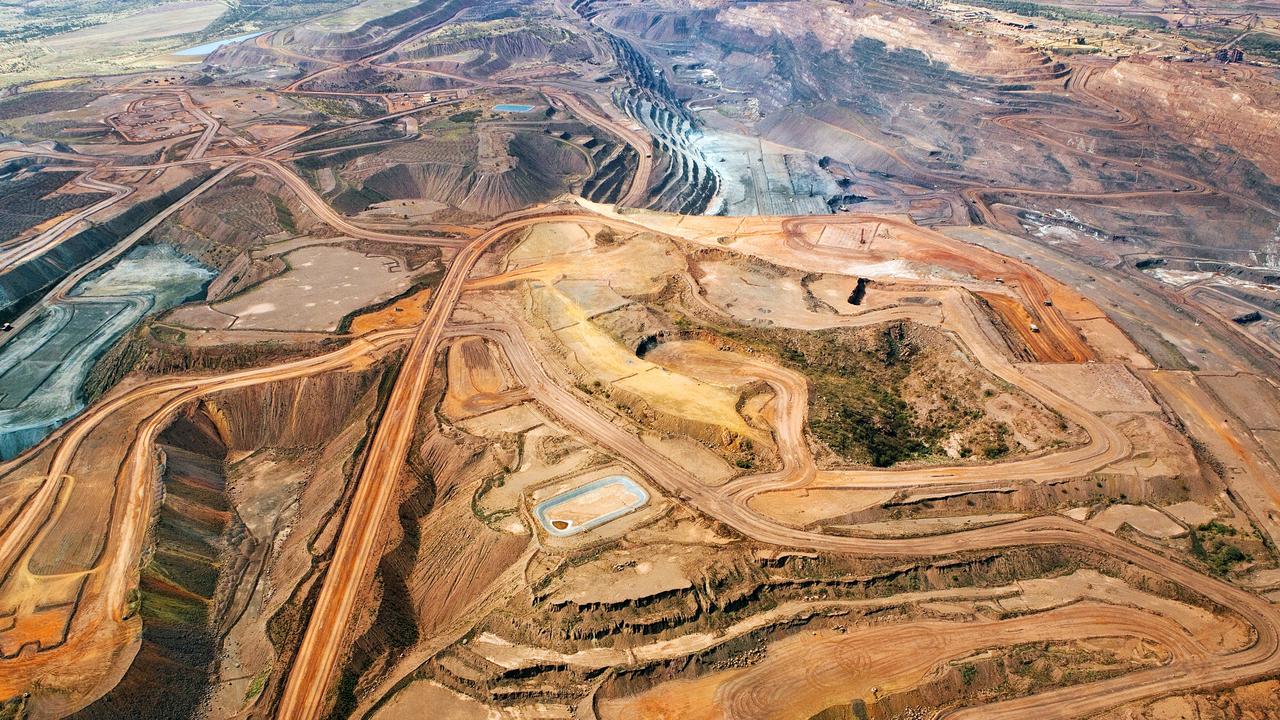
Property developer collapse
Another key issue in the iron ore markets is what happens with China Evergrande, Uren said.
“The Evergrande financial implosion bears similarities to the US sub-prime crisis with the
accumulation of property-related bad debts and losses having the potential to spark a loss of confidence in the financial system,” he warned in the report.
China Evergrande went from global titan to the world’s most indebted real estate developer, racking up a staggering $A432 billion in debt.
Its shares plummeted by more than 10 per cent in trading in Hong Kong on Monday, and is down 72 per cent in Hong Kong this year.
“There’s the potential for the failure of that group to cause significant fallout out across the Chinese property markets, including real estate and property development, as those industries are one of the major users of steel in China,” he told news.com.au.
“So we have seen the iron ore price come back from more than $US200 to less than $US100 in the space of just a couple of months. If the Evergrande property downturn turns into a more far-reaching downturn in China’s property market we could well see a lot more pressure on iron ore prices and the market getting a lot weaker over the next 12 months.”
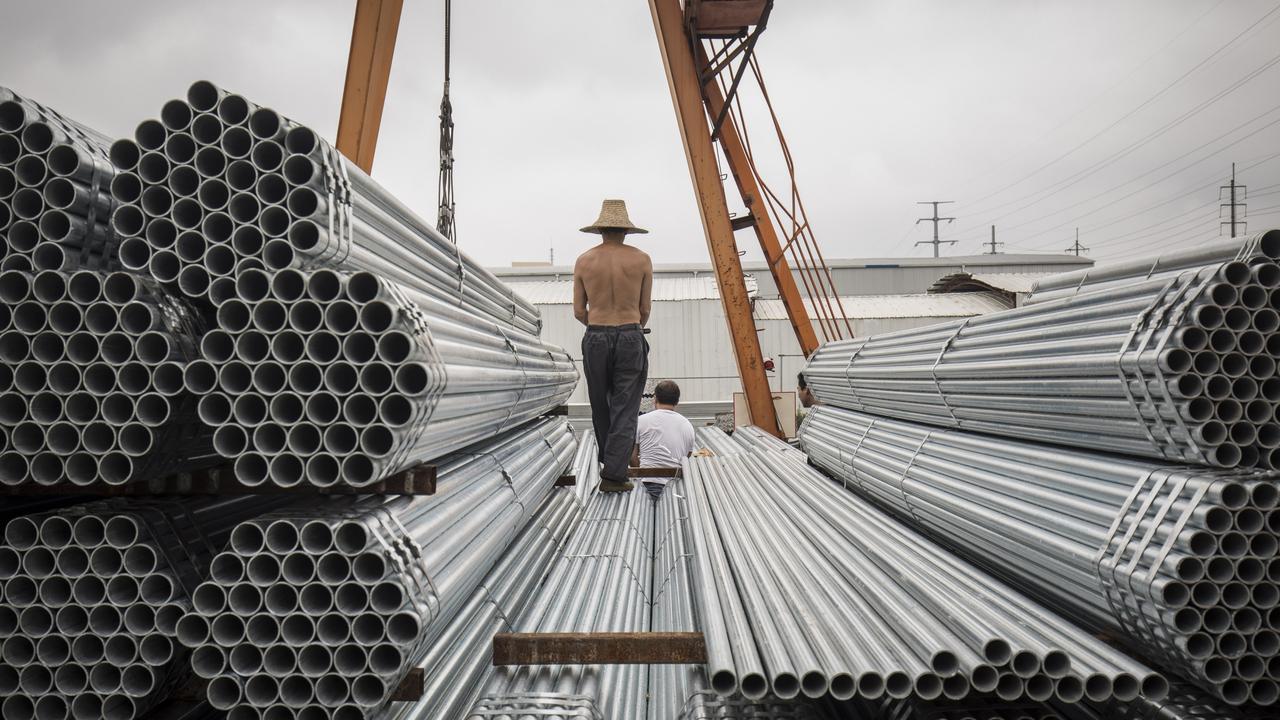
Other scenarios
But if there was steady global and Chinese economic growth, the report predicted prices could still drop dramatically but not have as severe an impact on Australia.
“Prices [could] drop back to $US50–$70/tonne, which would still be as much as double the production costs for either major Australian or Brazilian producers,” it said.
“This is broadly the view of both the Department of Industry and BHP.”
However, in a third scenario the report flagged that iron ore prices could rise to $US300 a tonne if China failed to curtail steel production, Brazil’s mining industry was muted and Africa was stalled.
“The reason for representing three scenarios is because forecasters have consistently got the iron ore market wrong,” Uren said.
“It’s entirely possible that China’s demand will wrong-foot forecasters again as it has so many times in the past. I don’t think the idea that the iron ore price could scale new heights is at all out of the question.”

ASX recovery
Australia’s most valuable export has seen its price haemorrhage more than 60 per cent from a record high in May when it hit close to $US240 a tonne.
The collapse in price which saw it plummet below the $US100 mark caused $A50 billion to be wiped off the ASX on Monday.
But the Australian dollar and shares have bounced back slightly after China Evergrande onshore property unit said it negotiated a plan with bond holders to repay $A35.9 million in interest due on Thursday.
But Evergrande’s ability to make a $A83.5 million payment on a March 2022 offshore bond which is also due on Thursday remains in doubt.
Originally published as Iron ore price could drop as low as $US20/tonne amid bitter China Australian relations




